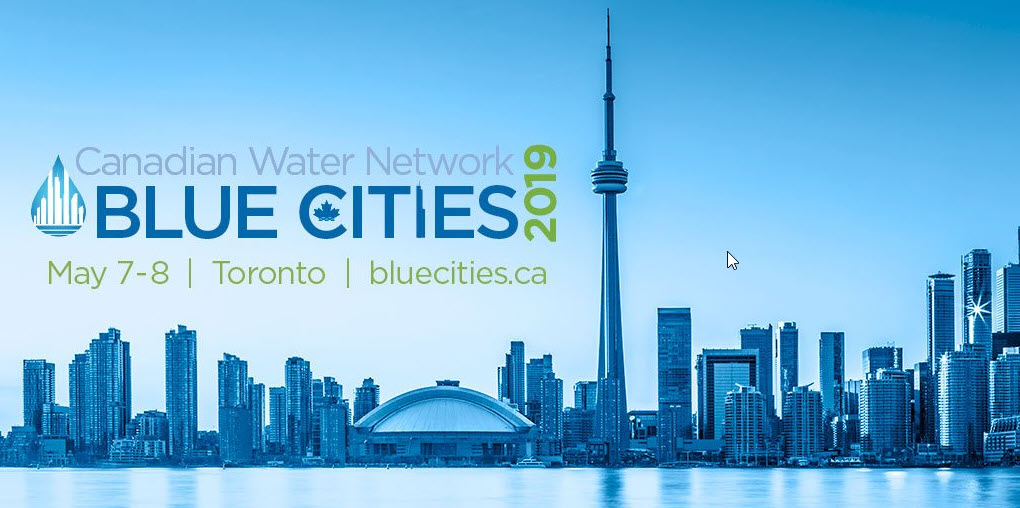Blue Cities 2019 Conference Insights
May 15, 2019

This article was written by Penh Tov, Director of Rainwater and Water Reuse at Net Zero Water. Penh recently attended the Blue Cities Conference held by the Canadian Water Network in Toronto, Ontario.
Embracing Change in Water Management
It’s easy to get caught up in the day to day work activities but taking a pause to look around and understand the broader industry’s challenges and evolution locally and around the world can help you to reassess your business goals and discover new opportunities. This is the first time I’ve attended Blue Cities and the theme “Embracing Change in Water Management” offered a bird’s eye view of the changes, challenges and examples of solutions in Canada and around the world. The conference topics evolved around how technology, innovation in clean technology and industry partnerships can help address the various water management challenges for water utilities who must address climate adaption with limited and constrained budgets.
It was encouraging to see that despite some unproductive political noise around climate change, that the engines of cities, including the utilities sector, are focused on minimizing the impact of severe weather events by working towards a more resilient infrastructure and response strategy. Governments come and go but cities live on. Therefore, looking towards the future and planning for the long game is necessary.
The urgency to develop resilient cities against unpredictable extreme weather is a priority for public utilities as the cost of post disaster recovery is astronomical and the impact is far reaching. Given limited capital, industry and utilities alike must get creative to find solutions that make cities more resilient and shorten the time it takes to bounce back. Sometimes it can mean putting everything on the table, dissecting what we do, and discovering new ways to approach a problem.
A look at Water Technologies
We’ve heard that technology will affect every aspect of our lives and the water sector is no exception. At the conference, discussions around how technology is being utilized only scratched the surface of its full potential. For example, using AI for water asset management will reduce the time needed to analyze data and create various scenarios and outcomes. The use of Big Data and AI may seem daunting especially if it’s not your field of expertise, but it brings us to the next point the conference delegates were echoing and that is, partnership.
Partnership is key to advancing productive change especially in a risk adverse industry where innovation or change move slowly. Collaboration between academics, advanced technical groups, private and public sector can help speed up innovation and development as resources and expertise of each party can be leveraged.
During the two-day event, the delegates shared creative solutions that address how various recovery strategies can mitigate water shortages or disruptions. As well, innovative clean technology such as repurposing waste into useful energy while reducing the utilities’ carbon footprint were presented. The exchange of ideas and experiences was inspiring and shows that where there is a will, there is a way. It reinforced the importance of asking why we do what we do as a means to discover new solutions, make productive changes and allow ourselves to “fail forward.”
Keynote: Centralized and Decentralized Systems
While most of the conference focused on centralized water and wastewater systems, the last key note speaker, Kala Vairavamoorthy, Executive Director of the International Water Association, touched upon the productive use of water by combining decentralized non-potable systems that are fit for use with centralized water systems for potable use. On an international level, the concept of integrated use of centralized and decentralized systems has been discussed as a more resilient and sustainable approach to solve our water and climate problem. However, it has been largely absent in Canadian dialogue.
At Net Zero Water our vision is to enable urban buildings and rural communities to become water resilient through rainwater harvesting, groundwater reuse and greywater reuse. My key take way from the Blue Cities conference is that Net Zero Water is perfectly aligned with the broader goal of our cities to become more resilient. As a private sector business, we are potential partners.
Therefore, to our current and future clients, we ask, “how can we help you to accelerate productive change?”
